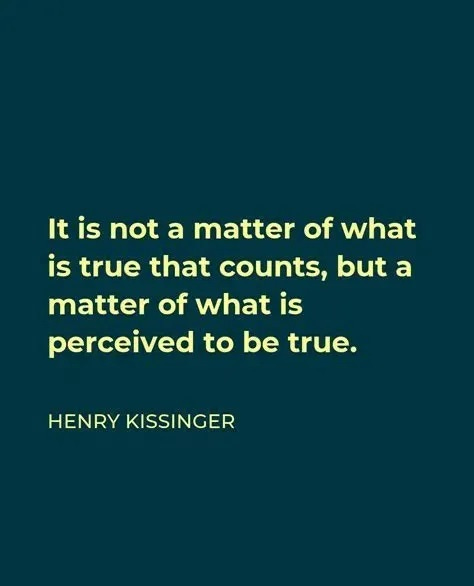What Is The Ideal Age Difference in Marriage?
How would you know?
Take it or leave it!
“If you are a woman and want to be happy with a man, understand him a lot, and love him a little! If you are a man and want to be happy with a woman, love her a lot, and don’t ever try to understand her!”
When I was teaching at the university level, I sometimes (only when it was relevant to the material) asked my students about their opinion about a pre-nuptial. Marriage has always been some form of written or unwritten legal agreement, defined by culture and tradition. Some of my students said asking for a pre-nupt would show their sweethearts that they wouldn’t trust them. Only a few students considered that such an agreement might prevent future temptation to take advantage of each other, once at least one of them would lose interest. After all, the average relationship lasts about seven years. The most scrupulous students even noted that prenupts couldn’t circumvent the law, and the law keeps changing, so the outcomes would be unpredictable.
Is there a way to secure a successful marriage at all?
My mother used to say, “If you knew you would trip and fall, you would sit on the ground first.” No such luck with marriage. Only the job is given, but no guarantees, unless the proverbial “lifetime warranty” applies, meaning that it is guaranteed to last as long as it does.
What could be the criteria for an ideal marriage? Lasting? Popular rags promote the idea and arrive at the conclusion that people are best off by marrying someone who is not older or younger than by more than three years. There are even statistics for that! Of course, that is a direct result of putting girls and boys of the same age in the same classroom, which didn’t use to be the case before co-ed.
As long as one of the parties can rip the other one off before or even after finding their next victim, divorce rates probably don’t pass for applicable evidence. Please, notice that in NYC, already a decade or more ago, professional women made 117% of the amount their male counterparts’ salaries, so alimony was something to count with for the women, in case they were planning to get a divorce!
Some “lasting” marriages might only last simply because of dead ends with no way out or two old pieces of furniture living together, because they have learnt to ignore each other over the years. For many, the bad that is known is preferable to an unpredictable future, which can also chain couples together. As Leonard Cohen puts it in “Waiting for a Miracle,”
Baby, let’s get married,
we’ve been alone long,
let’s be alone together,
let’s see if we are that strong.
***
A little trip over the history of marriage might allow for some insights.
As the scope of this article must remain pragmatic and manageable, barely scratching the surface must do, although the principle of staying pragmatic must also be maintained.
***
In Vietnam, it’s not unusual for a 50-year-old middle-class man to marry an 18-year-old beauty in church (due to its French colonial heritage, much of Vietnam follows the Roman Catholic tradition). In that case, the roles in the marriage are clear. It can be argued that a matrimonial union in which one party totally depends on the other turns the submitting one into a slave. That, however, is an old story, and the world is still turning. Roman Law, for one, left few rights to the female, and there was no room to protest that. In most cultures, in order to have protection, women have often been forced into connubial bliss by selecting one overlord over a hundred potential abusers.
To make it a bit more complicated, Eastern/African1 marriages are also often pre-arranged. Brides from those cultural hemispheres tend to opine that those (usually the parents), who arrange their marriages want the best for them, which works better in the long run than puppy love or infatuation. There is even a saying from the East that “In the West, people put a hot pot on the oven, and the boiling brew evaporates fast, while in the East, they place a cold pot on slow flame and it warms up and simmers over the years, bringing happiness that lasts for a lifetime.”
***
Most of the time in history, it was normal for the man to be even decades older than the woman. Dostoevsky or Mohammed were rare exceptions, when they married women older than they were, but they both married rich widows.
For Islam, let the source explain it:
https://qarabic.com/age-difference-in-marriage-islam/
Perhaps the most essential sentence from this text is,
“A woman is married for four (things); her wealth, her family status, her beauty and her religion. Choose (marry) the religious woman so that your home will be in abundance.”
For Dostoevsky and Mohammed, their first wives, who were rich widows, presented assets may have been essential, but personal attraction cannot be completely excluded, either. After all, De gustibus non est disputandum, that is, tastes are not to be disputed. Whatever works is the best, right? For that matter, Dostoevsky was a gambler, who wasted even the last pennies of his inheritance after his widow passed away and, because of being constantly in debt, he had to write fast in order to make money, so he had to hire a typist, whom he also married! Out of “love,” right?
***
How important has it been to have possessions before marriage? As a rule, as people age, the successful ones tend to have more. The story of orphans can exemplify the process.
In times before industrialization, there were no orphanages in the modern sense; relatives, congregations, or religious orders were obligated to take care of orphans.
In medieval Europe, if an orphan had no relatives, monasteries took them in. When they were old enough to become wives or apprentices (around age 12-14), they were sold to the highest bidder in the town or in the village, usually on the day of the Patron Saint’s Festivity outside the local church. Consider the price a religious “donation,” which was a reimbursement for the religious order that had taken care of them until then. The most zealous orphans may have been given a chance to become lay sisters or lay brothers. Without a dowry, girls were not accepted as regular nuns, and boys with dowry, so only some of those destitute children were allowed to stay at the monastery to do the most menial jobs as “lay brothers.” They were not taught how to read and write, and were only allowed to participate in activities that required neither. If nobody bought them and they didn’t pass for a lay candidate, a few more attempts were made to sell them or at least to “lease them out,” but after a while, they were unceremoniously dismissed, unless they fulfilled a useful role (does that ring a bell at the time of technocracy?) another monastery of the order was willing to take them in for the same reason. Some, especially the ones with a handicap, became beggars, others harlots, but the path was open for them to become day-wage laborers (well, after having to pay for food and lodging, that life was nearly impossible to leave), traveling tinkerers, actors, marketplace performers, or even mercenaries, in case they had a death wish.
In the Middle Ages, at least the husband or the wife had to be financially independent, if they wanted to have a chance to get “properly” married. It was not an accident that those, who didn’t make the cut ended up in “common-law marriages.” Either way, age difference was not up for consideration, unless the objective was to procreate legitimate offspring, after which the “wife” was properly discarded.
In a traditional community in Finland, it turned out that the ideal age difference for couples who wanted to ensure the survival of the family line was nearly 15 years:
The Sami people of pre-industrial Finland
The article states,
Yet, only 10 percent of these marriages were between men and women with that optimal age difference. The span ranged from men marrying women as much as 20 years older to women marrying men as much as 25 years older; the average age difference between husband and wife was three years. Marriage customs or the availability of reindeer to support a new family (the Sami people are reindeer herders) might be the reason that more Sami marriages did not display the optimum age difference, Helle says.
Ultimately, it is the age at which the woman begins bearing children that is the biggest factor in survival, the paper in Biology Letters suggests: Younger women, in general, bear more healthy children. Marrying an older woman or much older man proved the most detrimental to reproductive success.
Other research in modern day Sweden has shown that the ideal reproductive match is for a man to marry a woman six years his junior. But the cultural constraints on marriage may have changed. "Wealth was the most important factor in a [Sami] marriage," Helle notes. "Love played almost no role in it."
***
After the French Revolution of 1789, church and state became gradually separated. By the first half of the 19th century, orphans often found themselves in workhouses or similar institutions, whose objective was to follow the medieval tradition of having them trained and, eventually, getting rid of them at a profit. As industrialization was speeding up, more and more people possessed next to nothing, but they still got married. Again, it was a social contract in which age difference was only a minor factor to consider.
Marriage, as is now, has been a tracking device:
The World's Oldest Tracking System
As you know, this is not a religious stack, but let me share my analogy between medieval Europe and modern western nations. In the following, you might even enjoy some details from history that are not taught at schools.
***
After coeducation, teenagers of the same age were put together to share the same space nearly all day. That made them culturally highly compatible, but there were, and still are, some shortcomings.
While girls perform a lot better than boys on tests before puberty, after that they somehow choose to “dumb themselves down” to the boys in order to be selected by them. At the same time, boys usually mature later than girls in the modern world, making compatibility more difficult to achieve.
Women live longer, but age faster sexually, while men are interested in carnal intimacy until they die. Men also seem to have the desire for close encounters more often than women do. To take the edge out, in traditional China, a man (who were not even allowed to get married until they reached 30) kept a live-in concubine (who sometimes manipulated the man to get rid of the wife and make her the primary selection) or in Islam, men can have as many wives as they can provide for (although good taste dictates to stop at three most of the time, even for the rich). That, of course, doesn’t prevent Muslim invaders in the West to make sure all heir “wives” can collect support for being a “single mother.”2
Still, happy old couples like the ones I’ve seen in the West are never bothered by the small things! Loving each other3 over so many years proves more rewarding for them than anything money or corporeal euphoria could attain.
***
All things considered, marriage is, as my wife and I agree, a package deal: you take the good with the bad, be grateful for the good, and ignore the bad most of the time!
What Is Love? A Warning for Valentine's Day
I am proud to look like a hillbilly and NOT as an “academic.”
Only responsible relationships last in which both parties undertake the task of caring for the other. Such a commitment doesn’t age or go away once the sparks subside. It also keeps lighting up new fires!
What is my definition of marriage?
IT’S UNFINISHED BUSINESS!
Muslims are a different story:
What Is Love? A Warning for Valentine's Day
I am proud to look like a hillbilly and NOT as an “academic.”







I love this article. Ray, what you write about is so diverse and enjoyable. My favorite part was:
“Still, happy old couples like the ones I’ve seen in the West are never bothered by the small things! Loving each other over so many years proves more rewarding for them than anything money or corporeal euphoria could attain.
***
All things considered, marriage is, as my wife and I agree, a package deal: you take the good with the bad, be grateful for the good, and ignore the bad most of the time!
Only responsible relationships last in which both parties undertake the task of caring for the other. Such a commitment doesn’t age or go away once the sparks subside. It also keeps lighting up new fires!
What is my definition of marriage?”
I am 7 years older that my husband.  We met when I was 31 and he was 24. I thought for sure he would not be interested in me because of the age difference. I fell in love with him immediately. And knew that he was the one. So I was not in a rush, did not apply pressure, I knew he was interested, but cautious. We are both strong Christians and met at church. That has been our foundation and always will be. We’ve been married 40 years next week. I am even more in love with him, then I was in the beginning.
I always laugh if it was God’s perfect timing. If I had met him at 21, he would’ve been only 14. Lol I would’ve been more like a babysitter and a potential suitor.
Thank you for sharing your talent. I always look forward to your emails. God bless you and your marriage Ray.
I am 14 years older than my husband. He's my second but I've been married to him more than twice as long as the first one. Celebrating 17 years this year. However, our parents are the exact same age and we were raised very similarly although he was an only child and I had a sibling. Interestingly, he stays home and takes care of the home, cooking, etc and helps out our parents and other family while I work full time. I already had a 15 year old when we met and he never wanted children so that worked out as well as my son was old enough and didn't need another parent. They are friends and my husband helps him out too lol. It's been working pretty good for us!